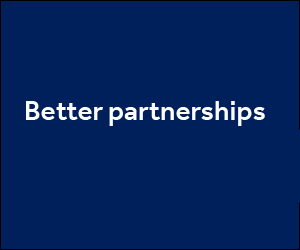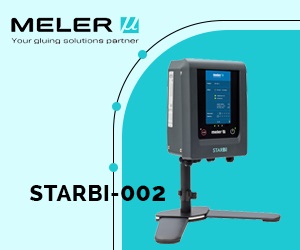Packaging and Labeling in the Age of Industry 4.0: Opportunities and Challenges

Introduction
In the ever-evolving landscape of modern manufacturing, Industry 4.0 is revolutionizing how businesses operate. This fourth industrial revolution is characterized by the integration of digital technologies, automation, and data exchange in manufacturing processes. One area significantly impacted by Industry 4.0 is packaging and labeling. As companies strive to meet increasing consumer demands for sustainability, customization, and efficiency, embracing the opportunities and addressing the challenges of Industry 4.0 becomes essential.
The Opportunities of Industry 4.0 in Packaging and Labeling
1. Enhanced Efficiency and Productivity
One of the primary benefits of Industry 4.0 in packaging and labeling is the potential for enhanced efficiency and productivity. Smart factories utilize advanced technologies like the Internet of Things (IoT), artificial intelligence (AI), and machine learning (ML) to streamline processes. Automated packaging lines, equipped with sensors and real-time monitoring systems, can detect and rectify errors immediately, reducing downtime and increasing output.
2. Customization and Personalization
With Industry 4.0, manufacturers can cater to the growing consumer demand for personalized products. Advanced data analytics and AI enable companies to analyze consumer preferences and tailor packaging and labeling to individual needs. This could mean customized labels with a customer’s name, personalized messages, or even unique designs that reflect a customer’s preferences.
3. Improved Traceability and Transparency
Traceability and transparency are crucial in today’s market, especially in industries like food and pharmaceuticals. Industry 4.0 technologies allow for detailed tracking of products throughout the supply chain. Blockchain technology, for instance, can create immutable records of a product’s journey from production to the consumer, ensuring authenticity and safety. This level of transparency builds trust and enhances brand reputation.
4. Sustainable Practices
Sustainability is a growing concern for consumers and businesses alike. Industry 4.0 promotes sustainable practices in packaging and labeling by optimizing resource use and reducing waste. Smart packaging solutions, such as biodegradable materials and energy-efficient production methods, align with eco-friendly goals. Additionally, digital labeling can replace traditional paper labels, further reducing environmental impact.
5. Data-Driven Decision Making
Industry 4.0 enables manufacturers to harness vast amounts of data generated during the packaging and labeling process. This data can be analyzed to gain insights into consumer behavior, production inefficiencies, and market trends. Data-driven decision-making allows companies to optimize operations, reduce costs, and improve overall product quality.
The Challenges of Industry 4.0 in Packaging and Labeling
a. High Initial Investment
Implementing Industry 4.0 technologies requires significant upfront investment in new equipment, software, and training. Small and medium-sized enterprises (SMEs) may find it challenging to allocate the necessary resources. However, the long-term benefits often outweigh the initial costs, making it a worthwhile investment for future competitiveness.
b. Integration Complexities
Integrating new technologies with existing systems can be complex. Many companies have legacy systems that may not be compatible with Industry 4.0 solutions. Seamless integration requires careful planning, robust IT infrastructure, and sometimes overhauling existing processes. Collaboration with technology providers and experts is essential to navigate these complexities successfully.
c. Data Security and Privacy Concerns
As packaging and labeling processes become increasingly digital, the risk of cyberattacks and data breaches also rises. Protecting sensitive information, such as consumer data and proprietary production details, is paramount. Companies must invest in robust cybersecurity measures, regular audits, and employee training to safeguard against potential threats.
d. Workforce Adaptation
The transition to Industry 4.0 requires a skilled workforce proficient in handling new technologies. Upskilling and reskilling employees to operate and maintain advanced machinery and software can be challenging. Companies need to invest in comprehensive training programs to ensure a smooth transition and maximize the benefits of Industry 4.0.
e. Regulatory Compliance
The adoption of new technologies in packaging and labeling must align with regulatory standards. Different industries and regions have specific regulations regarding packaging materials, labeling information, and sustainability practices. Staying compliant while innovating can be a delicate balance, requiring constant monitoring of regulatory changes and proactive adaptation.
Conclusion
Industry 4.0 is transforming packaging and labeling, offering numerous opportunities for efficiency, customization, sustainability, and data-driven decision-making. However, the journey is not without challenges, including high initial investment, integration complexities, data security concerns, workforce adaptation, and regulatory compliance. By embracing the possibilities and addressing the challenges, businesses can thrive in the age of Industry 4.0, delivering superior products and experiences to consumers.
To fully leverage Industry 4.0, companies need to develop a strategic approach. This includes conducting a thorough analysis of current processes, identifying areas for improvement, and setting clear objectives for the integration of new technologies. Collaboration with technology providers, industry experts, and regulatory bodies is crucial to ensure smooth implementation and compliance with industry standards.
Furthermore, companies should focus on fostering a culture of innovation and continuous improvement. Encouraging employees to embrace new technologies and providing ongoing training can help overcome resistance to change and maximize the benefits of Industry 4.0. By prioritizing cybersecurity and data protection, businesses can mitigate risks and build consumer trust.
In the long term, the successful adoption of Industry 4.0 in packaging and labeling can lead to significant competitive advantages. Enhanced efficiency, reduced costs, improved product quality, and the ability to meet evolving consumer demands will position companies for success in an increasingly digital and interconnected world. As technology continues to advance, staying ahead of the curve will be essential for businesses looking to thrive in the dynamic landscape of Industry 4.0. By embracing the opportunities and proactively addressing the challenges, companies can ensure a sustainable and prosperous future in the age of Industry 4.0.






